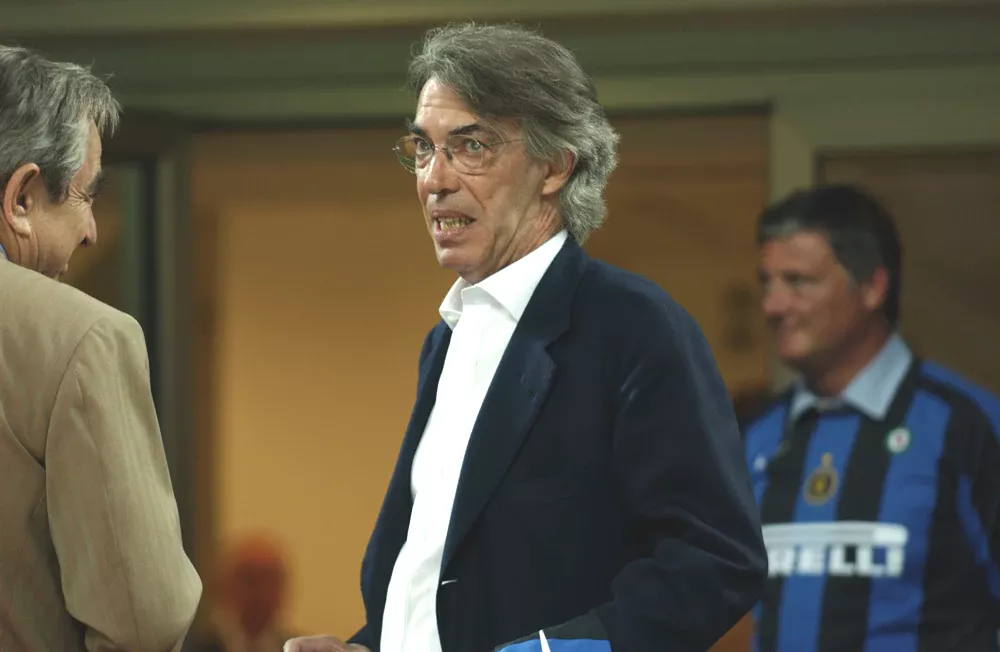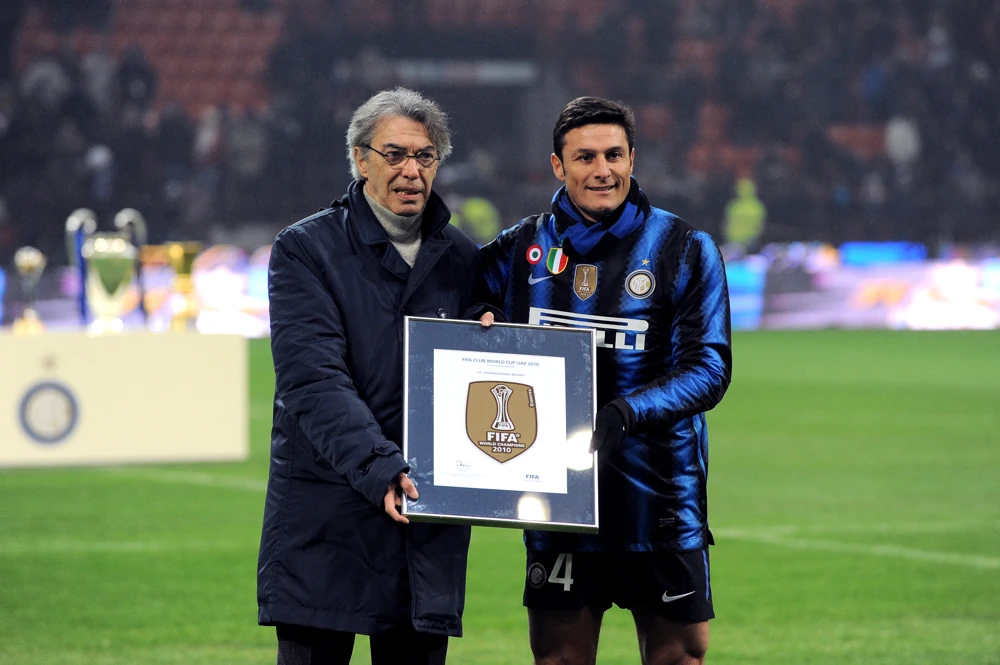Remembering Massimo Moratti's legacy as Inter chairman
Ronaldo, Roberto Baggio, Javier Zanetti, Christian Vieri, Luis Figo, Zlatan Ibrahimovic, Clarence Seedorf, Roberto Carlos... all of these names share two things in common beyond being amazing footballers. One of those things is that they all played at Inter Milan. And the other thing is that they were all signed by Massimo Moratti.
©
But what is the legacy of Massimo Moratti at Inter Milan? Which elements defined his time there? All of this and a few more facts are going to be addressed here.
Signing world-class talent
When Massimo Moratti took over as Inter Milan chairman in 1995, the club had been somewhat in disarray for a few years. Their last Serie A title was in the 1988-89 season and, barring a couple of UEFA Cup in 1991 and 1994, the club was overall struggling to win trophies and being a competitive side. Juventus and AC Milan, Inter's greatest rivals, were dominating football at the time.So, what did Moratti do within this context? Spending and investing in the squad. According to reports, Moratti spent a grand total of 1.5 billion euros from his personal wealth during his time as Inter's chairman, showcasing that this wasn't just a business venture. Considering his connection with the club since the days of his father Angelo in charge, it is easier to understand why Massimo was so willing to spend money on the club he loved.
Moratti invested heavily, which is why Inter finally had access to a lot of talented players, even if the results were oftentimes mixed despite this. But it was important to have access to this kind of talent in order to compete with Europe's elite and also to bring the club back to the upper echelons of world football.
While he made a lot of great signings, the one of Ronaldo in the summer of 1997 is always going to be highlighted. Back in those days, the Brazilian was widely regarded as the best player in the world, so Inter pulling off this signing was a major statement by Moratti that the club could compete with the best of them in the transfer window.
Trigger-happy with managers
A negative legacy of Moratti's is that he was very prone to firing managers when the results were not up to his personal standards. While it makes sense to sack an underperforming manager, the Italian had a habit of firing them whenever there was a bad spell of form, which is something that normally can be turned around in football with a little time.Furthermore, when taking into account that Roberto Mancini was the longest-serving manager at Inter with four seasons, that is saying a lot. There was a period between 2010 and 2012 when the club had four different managers. And before Mancini's arrival in the summer of 2004, Moratti had ten managers with very short stints in avperiod of just nine years.
This is a negative aspect of Moratti's tenure because it didn't give a lot of these managers the time to grow and adapt to the circumstances. It is also a direct result of the previous point, with the manager spending so much money on new players that his patience ran thin when the results were not good.
Considering that it took Moratti some time to win a side that could accomplish his goals, there is an argument to be made that him being trigger-happy at sacking managers didn't help his mission. In many ways, it was a major setback when taking all things into consideration.

©
Massimo Moratti together with Javier Zanetti
The treble winning team
Arguably the biggest legacy Massimo Moratti provided to Inter Milan was without doubt the treble. The club didn't win the European Cup (nowadays known as the UEFA Champions League) since the 60s under his father's reign, so there was an element of poetic justice that he was the one who managed to accomplish this feat with Inter once again.Moratti seemed to have found the perfect manager for his mission in Jose Mourinho. The Portuguese arrived at Milan in 2008, and this was during his prime years when he was without doubt considered as one of the best managers in the world, adding an element of quality and tactical know-how that made Inter good enough to compete at the highest level.
Furthermore, Moratti once again backed his manager and provided him in the summer of 2009 with players that would become key for that legendary 2010 treble. The likes of Diego Milito, Samuel Eto'o, Wesley Sneijder, Lucio, and Thiago Motta were all signed that summer, adding a level of quality and experience that was necessary to win all the competitions they were a part of.
It was a magical time for Inter fans and it was also the crowning achievement in Moratti's tenure as the club's chairman. This was what he was aiming for during his entire time as president and finally managed to win the UEFA Champions League against Bayern Munich in the final, displaying the kind of dominance the club didn't show for decades.
Massimo Moratti has his critics, and it makes sense because he was never a perfect chairman. However, there is no denying that he was instrumental in the club's success and growth during his reign, which is a period where they were a lot more able to sign top talent and accomplished its greatest success in modern times.
